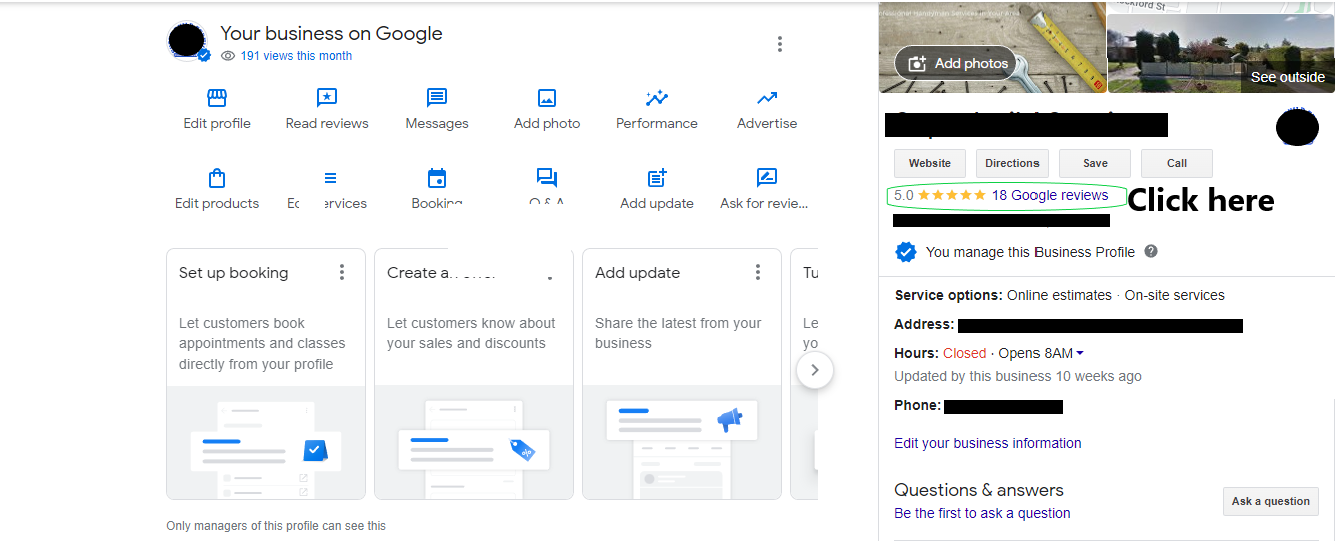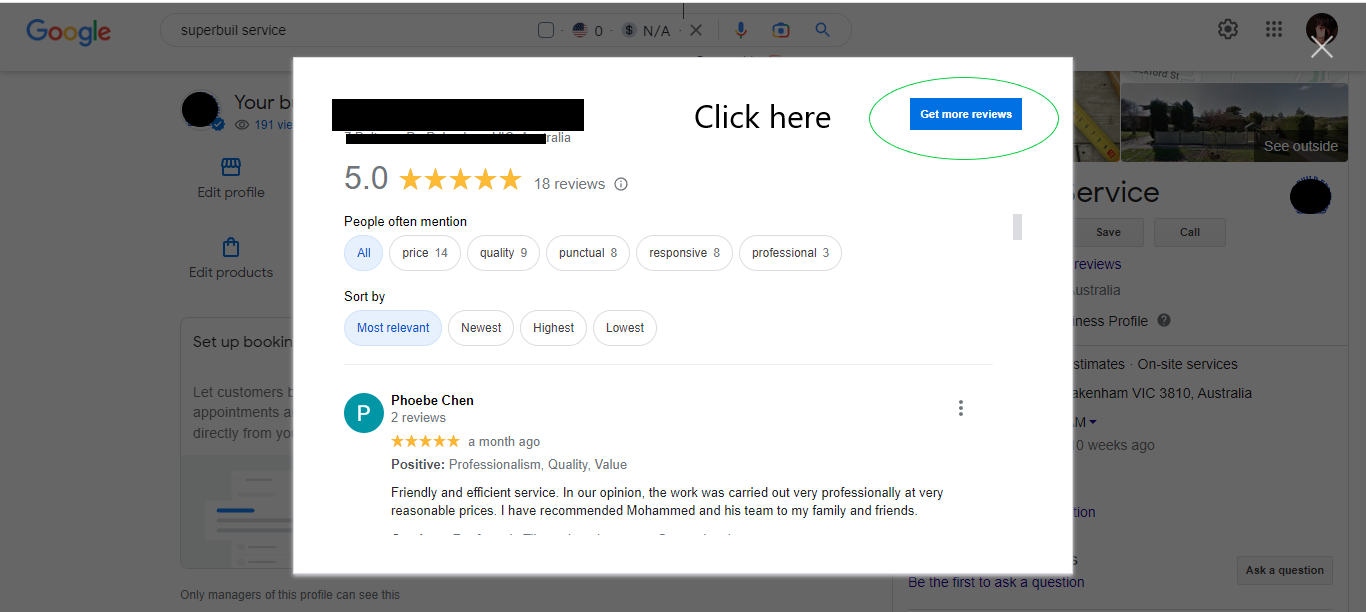SEO is a form of Internet marketing that allows businesses to reach their audience online; if you are running a local business and want to grow, you need to understand that today’s online consumer is constantly searching for local businesses. How can you get more local customers for your small business?
In this article, I’m going to share with you the 6 most effective and proven steps you can use to get the best local search ranking possible with these tips; we are going to discuss, Local SEO for small businesses.
What Is Local SEO

Local SEO is about optimizing your business to improve online visibility and attract qualified traffic from local customers.
It involves optimizing a website and online presence for specific local search keywords and phrases, as well as building online citations and backlinks from local directories and review sites. Local SEO for small businesses is essential, as it helps them to higher in local searches and gets more local customers.
Implementing the best local SEO practices for small businesses can help generate more leads, increase sales, and build trust among your local audience. In addition, local SEO can also help small businesses build their brand and reputation within their local community and increase their online visibility.
Importance of Local SEO For Small Businesses
When it comes to the importance of Local SEO for small businesses, we cannot deny the fact that it is the most effective way of marketing and advertising for your local business. It is the only way to reach local customers, as well as potential customers who are searching for your products and services in your targeted area.
If you are a business owner, you should know that a good online presence is essential. A good online presence is like a window to your business. Customers can see your business from a distance and will come to your store if they like your products or services.
However, they can also see your competitors from a distance. If they don’t like your products or services, they can simply look at your competitors and decide whether to buy from you or them.
Benefits Of Local SEO

There are many benefits of local SEO for small businesses, one of them is that it brings your business to the attention of people who live near your business or in a certain area of your city.
Below is a list of local SEO benefits for small businesses.
1. Increased online visibility:
There is nothing more important than having a good online presence, and local SEO is a very effective method of making your online presence successful. It increases your chances of getting customers and boosts sales.
ALSO READ: How Local SEO Can Be Effective For Your Local Business
2. Build brand and reputation:
Local SEO helps small businesses to build their brand and reputation within their local community by appearing on the first page of Google search results. It also builds trust among your customers.
4. Attract more qualified traffic:
Local SEO helps to attract more qualified traffic to your website. Qualified traffic means that people who search for a product or service using local search keywords or phrases will visit your website.
5. Boost sales and revenue:
Local SEO allows small businesses to boost sales and revenue by making their products or services appear on the search results page locally.
6. Improve customer experience:
A business with a strong online presence has a better chance of attracting new customers and improving customer satisfaction. Local SEO helps local businesses to make their presence known in local communities. This can lead to better visibility and an increased number of customer visits.
7. Cost-effective:
Local SEO doesn’t cost much. Business owners who want to rank higher for local search terms need to invest some time and money. However, the benefits that come from a successful local SEO campaign can last long after the initial investment has been made. The results will continue to bring in new customers and improve customer loyalty.
8. Stay competitive:
It is hard to compete with larger companies when they have greater resources than you do. If you have a local business, however, it is possible to stay competitive by investing in local SEO. This will give you a chance to attract new customers and improve your customer service.
Best Local SEO Practices For Small Businesses

Alright, now it’s time to take a look at the six best local SEO practices for small businesses that can benefit any local business to rank higher on search engines.
1. Optimize Your Google My Business Listing
Did you know your Google My Business page is one of the most important local SEO assets that you have?
The Google My Business page is where your information about your business, along with pictures and other details, will appear when someone types in a location in their Google search. It’s the first place that people will see when searching for businesses near them.
If you haven’t created a Google My Business page yet, do so right now! It will take only a few minutes and can help your business gain exposure.
Below are some tips to optimize your GMB (Google My Business) page:
1. Complete your business profile: The first step is to complete your Google My Business page as completely as possible. Include as much information as you can including accurate business name, address, phone number, website, business hours, and detailed description of your business.
2. Add high-quality photos: Photos are an excellent way to tell potential customers who you are and what you’re all about. Make sure to upload high-quality photos of your business location, services, or products.
3. Ask for reviews: Many businesses overlook the importance of asking people to leave honest customer reviews. Well, these reviews not only help you attract more customers but also helps Google understand your brand and show up in search results when potential customers search for businesses in your area.
You can ask for reviews from customers by sending them a direct review link which you can find under the review section of your GMB page. See the screenshot below:

Due to the new Google Business Profile, you would find yourself in a similar dashboard and upon visiting there, click on the reviews as described in the screenshot above.
After that, you would see a button that says “Get more reviews” as shown in the screenshot below:

Click on it and copy the link.
Now, it’s time to send that link to your customers and ask for a review. When they click on that link, they would be redirected to the review section directly, which saves them time to find the review option on the GMB page.
4. Respond to the reviews: After receiving the review, you must respond to it immediately to let your customers know how much you appreciate their feedback. The key is to thank them for their honest review and reassure them that you will take good care of their business and continue providing great service.
Sometimes you may get negative reviews but it doesn’t mean that you have to respond negatively to them. Just try to take constructive criticism positively and resolve any concerns your customers have.
You may wonder, does responding to reviews helps with SEO? Yes, it does! You can read what Google says about it here: https://support.google.com/business/answer/7091
5. Use relevant keywords: Using relevant keywords in your Google My Business page attracts the visitors you want by implementing the keywords in the description and posts. You can even add the location name to your business name. For example, if your business name is XYZ SEO Company and provide services in multiple locations, you can make use of the location name by adding it at the end of your business name.
For Example XYZ SEO Company Miami, XYZ SEO Company Orlando, XYZ SEO Company Tampa, etc.
6. Create posts: You can also make use of the Google Business post feature that lets you share a post to your Google My Business page. You can post about deals, news, and events that would attract the customers you want.
7. Keep your listing updated: Keep your listing updated with changes that may happen in your business. Such as adding new products or services, photos, new business hours, and posts. This way your customers will see that you are up-to-date with all your listings.
8. Use GMB insights: Last but not least, use Google My Business Insights to track your listing’s performance and make data-driven decisions about how to improve it.
2. Optimize Your Website
Have you created a website for your business? If not, you should. Websites play an important role in local SEO because they show up in the results of local searches. In fact, many business owners have reported seeing increased traffic to their websites from local searches since they started working on optimizing their local SEO for local keywords and phrases.
Here is a list of tips to optimize your website for local traffic:
1. Include location-specific keywords and phrases: Use keywords and phrases that include your target city, state, or region on your website. Such as in your page titles, headings, and content.
2. Create location-based landing pages: By creating location-based landing pages, you can direct traffic to your website from various locations. For example, if you are a dentist located in Los Angeles, you could create a separate landing page for Los Angeles with information tailored to that area.
ALSO READ: Local SEO for Dentists
3. Create a blog: If you want to drive more traffic to your website, then a blog section is a must. You can publish blogs about local topics relevant to your business that provides value to the readers and encourage them to be your customers. Make sure you read this Content Writing for SEO to create well-optimized content for your website.
4. Use schema markup: Schema markup allows webmasters to add specific structured data about their webpage using HTML or Microdata. The data is used by search engines to better understand your content, index your pages, and display them in search results.
By adding schema markup, you are letting search engines know about your business, location, hours, and other details about your services or products.
5. Build local backlinks: We all know how important backlinks from high-quality sites are for SEO. To get the best performance from local SEO for small businesses, you should be targeting backlinks from local sources such as your city’s government website, local news websites, directory sites, and local business websites that are in similar niches as your services or products.
6. Optimize images: Images play an important role in a website. Make sure you have optimized all your images properly to increase your SEO. This includes adding proper alt tags, keyword-rich descriptions, and using high-resolution images but be careful with the image size as they can affect your website loading speed.
7. Optimize your NAP information: Name, Address and Phone number (NAP) are important elements in your local search. You can optimize this information for your business by adding them to your website. This will help your website show up in local search results and also give you the opportunity to showcase more detailed information about your business.
8. Add a Google map: Google map helps to enhance the user experience of a website by giving a visual and interactive experience of being present on the same ground. For instance, if you would like to let users know where you are located, you can add a Google map.
9. Optimize page speed: It is always good to keep the user’s experience pleasant by keeping the page loading speed fast. Also, Google sees page speed as a ranking factor. You should make sure that your website loading speed is no more than 2 seconds.
10. Use analytics: Google Analytics is a free tool that allows you to keep track of all the actions performed on your website by visitors. This helps you to know how visitors find you, what they do after landing on your site, and which pages of your website they view.
You can also use Google Search Console to get more insights into the activity of visitors who have accessed your website through what keywords.
3. Engage on Social Media
Social Media Marketing strategies help local businesses get more exposure and establish brand awareness. Engaging on Social Media platforms like Facebook, Instagram, and Twitter is a great way to interact with your customers and promote your business.
By regularly sharing content on your social media page, you will be able to get in touch with your potential customers and provide them with valuable information regarding your company, its products, and its services.
4. Build Citations
Yes, we have mentioned this above for the website optimization tips but it’s again reminding you how important it is to create local citations on sites like Yelp and Yellowpages to improve your website ranking and be found by local customers when they search for businesses like yours in your targeted area.
5. Optimize for Voice Search
We are living in an era where people spend most of their time on their smartphones. Most people like to ask Siri, Alexa, and Google Assistant to perform a wide range of tasks, including searching for local businesses or products and services like yours.
To optimize your website voice searches, you must use long-tail keywords, natural language, and structured data on your website. Finding it hard to understand these terms? No worries!
I will explain now.
Long-tail keywords are less competitive but more specific and are more likely to be used in voice searches.
Natural language is similar to the way people speak. Well, you must know it if you use one of those voice assistants and the way you ask them to search for anything. Simple as that.
And lastly, structured data allows search engines better understand your website by the context and intent of your website.
Optimizing your website for voice searches can result in higher click-through rates, increased traffic, and higher conversions.
6. Track and Measure Your Progress
I know, we have talked about using Analytics already. But Google Analytics is not the only tool you should use to track and measure your progress.
You should also use third-party analytics tools that are designed for small businesses. Especially if you are using CRM and social media for your marketing purposes, make sure to track and monitor the campaigns and their results.
Additionally you can watch this video from Google on how to improve your local ranking:
Final Word
In conclusion, Local SEO for small businesses is a powerful and cost-effective way to increase their online visibility, attract more qualified traffic, boost sales, and improve customer experience.
By implementing the best Local SEO practices, small businesses can improve their local search ranking, build trust among their local audience, and establish a strong online presence in their community. If you need help implementing these tips into your local strategy, you can always count on Rocket SEO Pro
We help local businesses succeed online through SEO and different digital marketing strategies.
